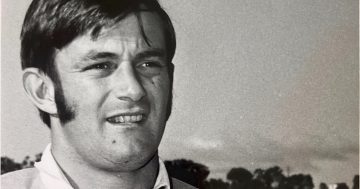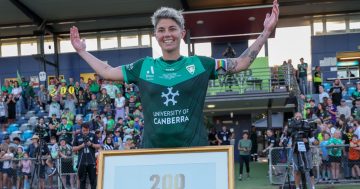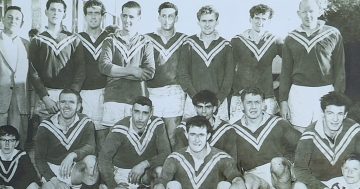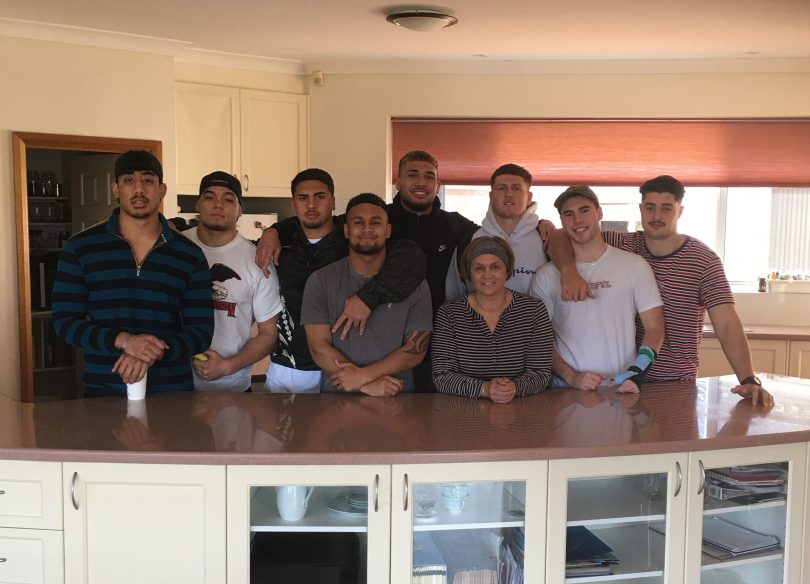
Sharon surrounded by her Raiders ‘family’. Photo: Tim Gavel.
A stone’s throw from Canberra Stadium, the Raiders have established a home-away-from-home for eight young players from Queensland and New Zealand. But before you start to visualise an American-style frat house with 18 to 20-year-olds running wild, stop! Nothing could be further from the truth.
The first impression of the house is the order and absolute tidiness that exists within this eight-bedroom household. There are firm rules, all adhered to without question.
Raiders recruitment manager Peter Mullholland says it is the best group house for football players that he has seen at any club. That’s no idle statement given he’s been at nine clubs.
The success is due to Sharon Clarkson and her husband Cyril. They came to Canberra from Brisbane to run the house following an invitation from Mullholland who saw the need for young players to have a structured and orderly environment in a new city.
Mullholland wanted a homely, family environment for these players, some of whom had never lived away from home before.
It’s the first time the club has gone down this path, creating a group home in a private house for young footballers living away from their families.
Thanks to Sharon and her family it’s an experiment that is working well, with some of the players involved in full-time training while four are working as teachers aides.
Mullholland says there’s a simple reason it’s working so well: “It starts with the people running the house. We have strong shared values.”
And Sharon also runs a very tight ship.
“We treat everybody equally and everybody has adapted well,” she says.
A mother of five, Sharon had a vested interest in making it work. Her son JJ, an Australian Schoolboys representative at 17, is one of the talented young players recruited by the Raiders from Queensland.
So Sharon, Cyril and their 14-year-old daughter Alyx relocated to Canberra to run the Raiders home for young players. The group includes JJ, Keaton, Adman, Caleb, Temple, Trey, Leo and Bryham. It’s an eclectic mix of young people with enormous potential and aspirations to make it in the NRL.
“They are great young men. We set the ground rules and it’s working well. We also have leaders within the group.”
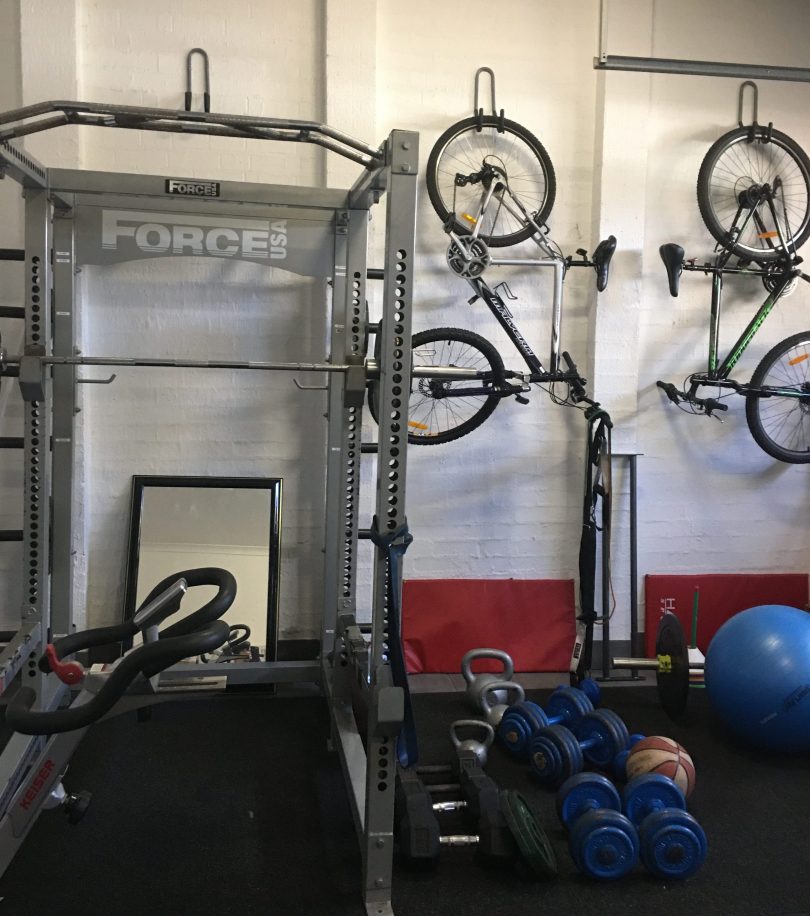
The young Raiders also have their own home gym. Photo: Tim Gavel.
Sharon has a passion for rugby league, having worked for Queensland Rugby League on their game-day operations as well as working for Australia Post. And her desire to ensure the house operates seamlessly includes setting up a gym for the players in the garage of the group home.
As we venture further into the conversation there is an obvious question for anyone running this household: how much is the food bill?
Sharon is quick with the reply: $130 a day she says (this was obviously not the first time she had been asked that question).
I must admit I thought it might have been more but she says the key is identifying the right place to shop, getting items that are on special, and knowing when to shop.
“They pack their own lunches,” says Sharon, whose organisational abilities hopefully rub off on the young people in the household.
Mullholland is justifiably incredibly proud of what has been established here. He can’t praise Sharon and her family enough.
“Sharon and her husband are the best signings the Raiders have made,” says Pete, who has inked many contracts in his career.
From my observations, ensuring young football players have a balanced lifestyle with day-to-day practical responsibilities is what professional sport needs to provide given the potential highs and lows that they will experience in their careers. The Raiders are taking great steps to making sure that these young men are not just developing as football players, but see that they develop responsibilities and relationships that are critical to a grounded life.
Original Article published by Tim Gavel on The RiotACT.










